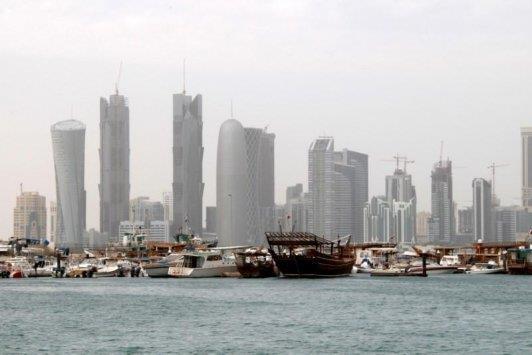
Qatar- Most GCC banks are well-positioned to absorb twin shocks
With strong capitalisation, adequate liquidity, and relatively low NPLs, the GCC's banking systems will continue to remain sound despite the double shocks from oil price fall and COVID-19.
GCC banks have enhanced their risk management and implemented countercyclical capital buffers and loan loss provisions in the past decade to limit systematic financial sector risk.
Nonetheless, prolonged low oil prices could lead to deterioration in the asset quality of banks in the region and financial sector stress may increase in few banks in the region, the Institute of International Finance (IIF) noted yesterday.
The IIF expects gross public foreign assets of the GCC to remain substantial at around $2.6 trillion, about 70 percent of which is managed by SWFs with diversified portfolios of public equities, fixed income securities, and shares in global companies.
While the SWF of Kuwait is bringing back some of its assets held abroad to partly finance the country's fiscal deficit, other major SWFs in the region continue broadening their global portfolio by buying assets whose valuations have been hit hard by the COVID-19 shock. Official reserves, meanwhile, are invested in liquid assets. The GCC sovereign wealth funds continue to buy assets in the US, Europe, and China, with focus on investing in healthcare, technology, and logistics.
The IIF noted that monetary easing could limit the economic fallout from the COVID-19 shock. Key policy rates have been reduced by 125 bps across most of the region. The authorities have also introduced liquidity support measures amounting to 4 percent of GDP (about $54bn) to help alleviate stress in the financial system and support the private sector, particularly SMEs which may be less equipped to tackle large temporary shocks.
The central banks have set up mechanisms to encourage commercial banks to postpone private sector loan repayments for six months. Shocked by COVID-19 and the plunge in oil prices, the GCC's overall real GDP is expected to contract by 4.4 percent in 2020.
Oil GDP is projected to contract by 5.3 percent due to the Opec+ production-cut agreement. The non-oil GDP could contract by 3.8 percent due to virus-containment measures, the plunge in oil prices, and lower public spending.
The service sector activity will be hit the hardest due to containment efforts and social distancing. Private and public investments have also been delayed. Growth could resume in 2021 supported by the partial easing in oil production cuts and gradual pick-up in private sector non-oil activity.
GCC authorities have resumed fiscal adjustments despite the recession. Public investment will likely shoulder the brunt of the cuts, as was the case in 2015 and 2016, and some low-priority projects have already been cancelled.
The significant cut in public spending in the six GCC states could more than offset losses stemming from reduced oil exports, and the new VAT receipts could mitigate lower non-oil revenue related to the effects of COVID-19.
Accordingly, IIF's revised calculations show lower fiscal breakeven Brent oil prices for Saudi Arabia ($75/b), Bahrain ($77/b), Oman ($80/b), and Qatar ($54/b) in 2020.
Nonetheless, IIF expects the aggregated fiscal deficit to widen from 2.5 percent in 2019 to 10.3 percent of GDP in 2020, equivalent to $144bn, assuming an average Brent oil price of $40 per barrel. It projected a decline in hydrocarbon revenue from $326n in 2019 to $200bn in 2020. Qatar and two other GCC countries, with large public foreign assets, are better placed to accommodate large deficits than Bahrain and Oman.
Lower hydrocarbon exports will also weigh on the current account, which IIF expects to shift from a surplus of $88bn in 2019 to a deficit of $33bn in 2020 despite the projected 15 percent fall in imports. Capital outflows will continue to exceed non-resident capital inflows. As a result, consolidated GCC official reserves will fall by $133bn in 2020.

Legal Disclaimer:
MENAFN provides the
information “as is” without warranty of any kind. We do not accept
any responsibility or liability for the accuracy, content, images,
videos, licenses, completeness, legality, or reliability of the information
contained in this article. If you have any complaints or copyright
issues related to this article, kindly contact the provider above.


















Comments
No comment